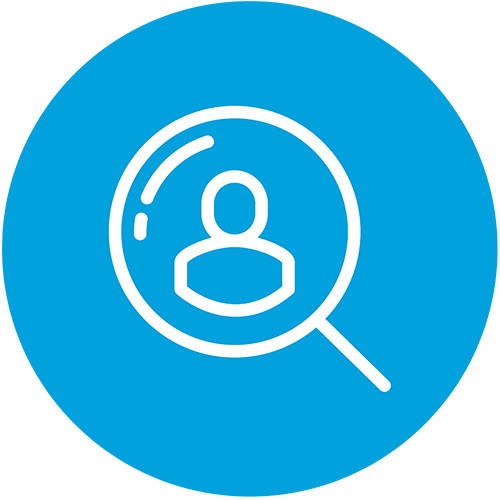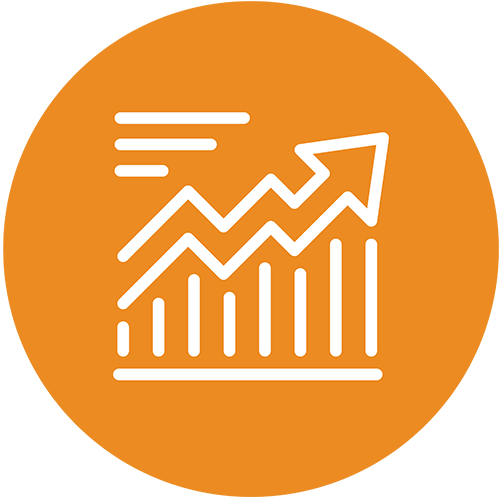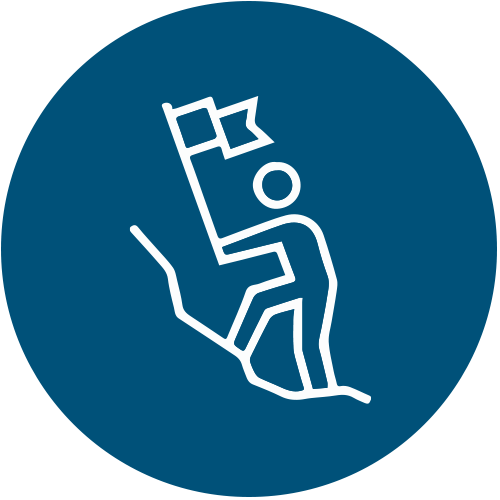
Recordings
Past conference sessions and webinar recordings make it easy for you to reference learnings from over the years. Stay on top of industry trends and changes by exploring these resources.
Recordings
-
Contains 2 Product(s)
Bundle the Apra Fundamentals: Prospect Research and Relationship Management, to be held virtually on April 7, 8, and 9, 2026.
Apra Fundamentals: Prospect Research
Apra Fundamentals: Relationship Management
-
Register
- Non-member - $725
- Professional Member - $725
- Associate Member - $725
- More Information
-
Register
-
Contains 43 Product(s)
Get 43 sessions offered at the Prospect Development 2025 Conference, held August 19 - 22, 2025.
Get 43 sessions offered at the Prospect Development 2025 Conference, held August 19 - 22, 2025.
- Keynote Presentation: The Recovery Blueprint: Implementing Resets, Personal Data, and Self-Connection to Sustain Success
- A Diversity, Equity, and Inclusion Initiative: A Journey to both diversifying pipelines and portfolios and communicating findings to external stakeholders
- Doing More With Less: Taking Care of Your Team During Turnover
- From Overlooked to Engaged: Capturing Hidden, Forgotten, and Untapped Prospects with a Referral Tracking System That Drives Fundraising Success Transforming Prospect Discovery and Qualification Through Data and Accountability
- From Stagnant to Strategic: Transforming Portfolio Management in Small Shops
- Partner Industry Panel: Generative AI: More Than a Buzzword
- Breaking it Down - A Different Way to Approach Portfolio Pipelines and Movement
- Making the Case for More Staff: A Comprehensive Guide to Demonstrating the Need for Additional Staff to Enhance Productivity, Efficiency, and Employee Well-being
- PROST! PRoactive, STrategic Research - a $1 Billion Tool for Cultural Transformation
- What Makes a Good Fundraiser: Is the Devil in the Details?
- Building the Foundations of a Prospect Development Program in a Solo Shop
- Don't Assume!
- Portfolio Horror Stories! Using Data-Driven Insights to Transform Frightening into Fantastic
- The Journey Unfolds: Choosing a Career Path in Prospect Development
- Apra Talks: Sailing through the Storm: Navigating and Growing from a Challenging Work Environment
- Beyond Buy-In: Driving Lasting Change in Prospect Development & Data Management
- Connection Capital: Activating Ultra High Net Worth Prospects in a New Market
- Designing an Excel-lent Prospect Management Revamp
- Major Gifts, Smarter Research: The AI Advantage Explained
- Ask the Ethicist: When Donor Behavior is an Organizational Risk; How to Protect Your Organization and Your Staff
- Consultant Mastery: Hire Smart, Utilize Wisely
- From Excel to Python - A Journey in Name Matching Techniques
- Partners That Align: Due Diligence Strategies for Corporate and Foundation Relations
- Can ChatGPT Write My Profile?
- Decoding the SEC's Alphabet Soup for Dollars
- Getting Started with R for Data Science: A Non-Expert's Guide
- Enhancing Fundraising Efficiency through Tiered Services
- From 0 to 100: A Newbie's Journey in Power BI
- From Solo to Duo: Designing and Scaling an Effective Prospect Management System for a Growing Team
- Hidden Figures: Identifying High Net Worth Prospects of Color Through Non-Bias Screening Techniques
- Apra Debates: 2025 Edition
- Championing Collective Success: Leadership Through Managing Up, Down, and Across
- From Chaos to Clarity: Change Management Strategies for Prospect Development Teams
- Reeling in Results: Turning Portfolio Reviews into Fundraising Strategy
- Planting the Seeds of Philanthropy: A Stardew Valley Approach to Discovery Management
- Researching Land Investments and LLCs
- She Doesn't Even Go Here!: Researching Outside of the Lines
- What's in a Model? The Inner Workings of LLMs
- An Exploratory Approach to Predictive Modeling
- Navigating Transitions: Effective Change Management and CRM Transformation
- Sailing the Seas of Success: Charting the Course with Prospect Research in Healthcare
- The Prospect Strategy Puzzle
- From Volunteer to Leader: Unlocking Career Paths Through Service
-
Register
- Non-member - $710
- Professional Member - $540
- Associate Member - $540
- More Information
-
Contains 1 Component(s)
This panel will bring together seasoned professionals who have leveraged association volunteering to advance their careers, strengthen their expertise, and make a lasting impact on their industry.
Volunteering with Apra is more than just a service to the field it's a career accelerator, a leadership lab, and a gateway to an invaluable network. Whether you're looking to expand your industry knowledge, build meaningful connections, or refine leadership skills, raising your hand to volunteer can shape your professional journey in ways you never expected. This panel will bring together seasoned professionals who have leveraged association volunteering to advance their careers, strengthen their expertise, and make a lasting impact on their industry. Attendees will leave with practical insights on how to get involved, have an outsized impact on our community, and turn volunteer experiences into career-defining opportunities.
Lindsey Nadeau
VP, Philanthropy Insight
UNICEF USA
Lindsey Nadeau, CFRE, is vice president of philanthropy insight at UNICEF USA, where she guides the organization toward data-driven decision-making and automation across campaign planning, prospect research, relationship management, database management, reporting, analytics, gift processing, record management, and donor relations. She was previously the director of research and relationship management at The George Washington University, led development operations at the Center for American Progress, was an assistant director of prospect research and management at The American University, and held multiple roles (read: too many hats!) in development operations at Public Citizen.
Lindsey is president-elect of Apra International and previously served as secretary. She is a former president of Apra Metro DC, chaired Apra International’s Conference Planning Committee, and served on Apra International’s Nominations, Connections Editorial Advisory, Data Analytics Symposium, Apra Talks, and Body of Knowledge committees. She was also co-chair and faculty for CASE’s annual Prospect Development Conference and is a former chair of the AASP Prospect Development Best Practices Committee. She is an instructor of Relationship Management: Data, Policy, Insight at Rice University’s Center for Philanthropy and Nonprofit Leadership and served on iWave’s Advisory Counsel. Lindsey contributed to CASE’s 2023 book Advancement Strategies: A Reference Guide for Advancement Services Professionals, 4th Edition. She holds a BA in economics from The American University and enjoys a charmed life in Reston, VA, as an equestrian, wife of a winemaker, and mom to her 7-year-old daughter.
Catherine Flaatten
AVP, Prospect Development
BWF
Catherine Flaatten, MPH, CFRE, is the associate vice president of prospect development at BWF, where she advises nonprofit clients on building and strengthening programs in prospect research, management, and analytics. Her consulting is grounded in past practitioner experience at The George Washington University, Share Our Strength/No Kid Hungry, the National Psoriasis Foundation, and the BrightFocus Foundation.
Catherine serves on Apra International’s Board of Directors, Education and Professional Development Committee, and Fundamentals Committee and has held numerous volunteer leadership roles with Apra International, Apra Metro DC, and aasp. She is a frequent presenter and author in the field, and her expertise has been featured in the Chronicle of Philanthropy. Her contributions aim to position prospect development as a strategic driver of fundraising success and strengthen the profession through knowledge-sharing and leadership.
She earned both her BA in International Affairs and her MPH in Maternal and Child Health from The George Washington University.
Prisca Zaccaria
Executive Director, Prospect Development
University of South Carolina
Prisca is the Executive Director of Prospect Development at the University of South Carolina. She is a strategic, innovative, and collaborative fundraising research professional with over 21 years of experience. As a key member of the Prospect Research & Prospect Strategy, she leads her teams in supporting fundraising efforts for priority institutional initiatives, the office of the University President and Vice President, the central office fundraising teams, and more than 16 schools, colleges, and units. At her prior position, she successfully led the Advancement Research and Prospect Management operations in closing out two comprehensive campaigns for the University of Georgia.

Shalonda Martin
Pomona College
-
Register
- Non-member - $110
- Professional Member - $65
- Associate Member - $65
- More Information
-
Register
-
Contains 1 Component(s)
In this session, get a high-level overview of the science and technology behind GPT, DeepSeek and other large language models.
In this session, get a high-level overview of the science and technology behind GPT, DeepSeek and other large language models. We'll take a look at the history of deep learning and some of the concepts that have made recent leaps in artificial intelligence possible. We'll also see that understanding how these models are created offers insights into how to overcome some of their limitations for prospect research-based tasks. This is a technical talk (there is some high school math mentioned) presented for a non-technical audience.

Matthew Charters
-
Register
- Non-member - $110
- Professional Member - $65
- Associate Member - $65
- More Information
-
Register
-
Contains 1 Component(s)
Whether you're in higher education, healthcare, arts & culture, or any nonprofit sector, this session will help you think outside the lines, uncover hidden prospects, and diversify your donor pipeline like never before.
Traditional prospect research often focuses on an organization's most obvious supporters' alumni, patients, patrons, or direct stakeholders. But what about the untapped potential beyond these natural constituencies? In this session, we'll challenge conventional research boundaries and explore strategies to identify, assess, and engage non-traditional prospects who have the capacity and inclination to give despite lacking a direct affiliation with your organization. We will examine case studies from various organizations, highlighting their identification processes and the successes achieved through strategic prospect research. Whether you're in higher education, healthcare, arts & culture, or any nonprofit sector, this session will help you think outside the lines, uncover hidden prospects, and diversify your donor pipeline like never before.
Sarah Price
Managing Director of Research Services
BWF

Andrea Dowd
-
Register
- Non-member - $110
- Professional Member - $65
- Associate Member - $65
- More Information
-
Register
-
Contains 1 Component(s)
Struggling to get fundraisers to "take the bait" and engage in strategic conversations? Just like fishing, successful fundraising requires the right strategy, patience, and knowing where to cast your line.
Struggling to get fundraisers to "take the bait" and engage in strategic conversations? Just like fishing, successful fundraising requires the right strategy, patience, and knowing where to cast your line. Portfolio meetings help ensure fundraisers aren't just fishing in the dark'they provide a clear view of where they stand and how to best engage their prospects. This session will explore how to structure and lead these meetings to hook meaningful insights, identify the best opportunities, reel in strategic conversations, and move beyond routine portfolio reviews to proactive planning. Attendees will leave with actionable strategies to enhance collaboration, optimize portfolios, and make data-driven decisions that support fundraising goals.

Krystal Wilson
-
Register
- Non-member - $110
- Professional Member - $65
- Associate Member - $65
- More Information
-
Register
-
Contains 1 Component(s)
This session will provide actionable strategies for managing transitions within a prospect development team, including best practices for training colleagues, gaining buy-in from leadership, and ensuring a smooth implementation of new processes.
Change is inevitable in fundraising offices whether it's a new CRM, leadership transition, or restructuring of prospect management systems. Successfully navigating change requires intentional planning and clear communication. This session will provide actionable strategies for managing transitions within a prospect development team, including best practices for training colleagues, gaining buy-in from leadership, and ensuring a smooth implementation of new processes. Attendees will leave with a roadmap for leading change effectively while maintaining productivity.

Liz Mills
-
Register
- Non-member - $110
- Professional Member - $65
- Associate Member - $65
- More Information
-
Register
-
Contains 1 Component(s)
This session will help you lead from any position by mastering the art of managing up, down, and across.
Leadership isn't just about having a title -it's about influence, collaboration, and the ability to drive change. As prospect development professionals, you are critical to fundraising success, yet you often work behind the scenes, juggling the needs of fundraisers, leadership, and data teams. How do you ensure your expertise is heard, your insights are acted upon, and your role is recognized as essential? This session will help you lead from any position by mastering the art of managing up, down, and across. You'll learn how to communicate effectively with leadership, strengthen partnerships with frontline fundraisers, and navigate organizational dynamics with confidence. We'll explore practical techniques for building trust, advocating for your ideas, and positioning prospect development as a strategic driver of fundraising success. Attendees will leave with actionable leadership skills to increase their influence, foster collaboration, and create lasting impact ' without needing a formal leadership title.
Amy Carrier
Senior Director, Advancement Information Management
Oregon State University Foundation
-
Register
- Non-member - $110
- Professional Member - $65
- Associate Member - $65
- More Information
-
Register
-
Contains 1 Component(s)
Apra Debates is back! This session will have three new topics that will explore two sides of common issues in our industry: 1) Is PD Ready for AI? 2) Top time-wasters for a PD team and 3) Should fundraisers have access to prospect research resources?
In 2019, Apra experimented with a new format for the popular Apra Talks PD conference session. Lovingly referred to as Apra Debates, the main stage session focused on friendly debates for three different issues in prospect development. Six years later, Apra Debates is back! This session will have three new topics that will explore two sides of common issues in our industry:
- Is PD Ready for AI?
- Top time-wasters for a PD team and
- Should fundraisers have access to prospect research resources?
Each issue will be moderated, and questions will be asked to fully understand each side's opinion. But that's not all: Session attendees will also have a role! For each topic, attendees will get to participate in a poll that requests YOUR opinion. Apra Debates will be just the beginning of the conversation! More discussion on these topics will appear in future Apra publications. Don't miss your chance to see history being made and share your opinion!
Stephanie Willis
Senior Manager of Prospect Development
Creative Fundraising Advisors
Stephanie is the Senior Manager of Prospect Development at Creative Fundraising Advisors and is passionate about helping nonprofits understand the “science” of fundraising, and how to effectively use data and research to enhance the “art” of fundraising. Stephanie has over a decade of experience in prospect research, prospect management, and data analytics at both higher education and nonprofit organizations. Stephanie has been a loyal Apra member and volunteer since 2013. For six years, she served on the Apra Indiana Board in roles including webmaster, programming chair, treasurer, and vice president. In 2019, Stephanie co-founded the Apra Great Lakes chapter to launch a new regional experience for local state chapters. Stephanie has been a regular attendee and speaker at the annual Apra PD conference and served on the Curriculum Planning Committee for three years. In 2023, she was honored to serve as the chair of the Apra PD conference in Indianapolis and is currently a member of the Apra Board and the Apra Foundation. Stephanie has an undergraduate degree in education and a master’s degree in library science. She is certified in the Tessitura and Blackbaud Raiser’s Edge databases. Since 2010, Stephanie has been a Gallup-certified Strengths coach and has helped hundreds of people understand, apply, and integrate CliftonStrengths results into their lives and work. Originally from Detroit, Michigan, Stephanie recently moved from Indianapolis, Indiana to Three Rivers, Michigan.
Brittani Williams
Director, Development Operations and Prospect Development
Houston Zoo
Brittani Williams, MBA, is a seasoned fundraising expert with extensive experience in development operations, prospect development, and fundraising strategy. Currently serving as the Director of Development Operations and Prospect Development at the Houston Zoo, Brittani brings over twenty years of fundraising expertise to her role.| |With a background deeply rooted in the philanthropic sector, Brittani has dedicated over eight years to the Houston Zoo, progressively advancing from Development Research Analyst to her current position as Director. In her current capacity, she spearheads strategic initiatives to drive philanthropic growth and engagement, leveraging her finely honed skills in prospect research, relationship management, and operational excellence. Her work is exemplified in the Houston Zoo's largest campaign in its history, the ""Keeping Our World Wild"" centennial campaign, which raised over $150 million dollars for the Zoo and its conservation partners worldwide.| |Prior to her tenure at the Zoo, Brittani made significant contributions to the University of Houston, where she served in various roles within the University Advancement division. Notably, she played a pivotal role in supporting the silent phase of the University's ""Here, We Go"" campaign contributing to the remarkable success of the $1.2 billion dollar fundraising effort. Prior to positions in the nonprofit realm, Brittani held roles in political consulting, political campaign fundraising, and congressional constituent relations. | |Brittani holds a BS in Political Science and Psychology (dual majors) and an MBA specializing in Global Management and Business Modeling & Decision Making, all from the University of Houston. ||Brittani has been a member of Apra International since 2016 and was elected to the Board of Directors in 2024. Previously she has served in several volunteer roles with Apra International, including with the Conference Planning Committee, Chapters Committee, Nominations Committee, Awards Committee and Campaigns Task Force. She previously served as a board member for Apra greater Houston and as a member of the best practices in prospect development committee with aasp. Brittani was a 2022 nominee for the Houston Business Journal's Women Who Mean Business award. |
Rachel Hammond
Donor Research Coordinator
Moody Bible Institute of Chicago
Rachel Hammond is the donor research coordinator for the Moody Bible Institute of Chicago. Starting her career in advancement services at her alma mater, Hammond learned the importance of donor cultivation, retention and engagement as a student caller, call center manager and advancement intern. As a student caller, she raised funds for scholarships by establishing relationships with alumni and friends of the college instilling in her a passion for cultivation. After one year of being a student caller and securing the largest gift during the spring giving season, she was promoted to be the student call center manager where she assigned calling pools, trained students in the calling program and mentored them as they finished out their college careers. Learning the value of retention in this role, Hammond strived to see her college colleagues succeed just as she did and continue the legacy of the student calling program.||As the advancement intern, Hammond harnessed her passion for engagement and development as she built the in-house calling program, implemented the student philanthropy association and learned about each role in advancement services. This experience led her to the position she holds today at Moody, where she harnesses all the skills she learned at her alma mater as well as the ability to uncover key wealth indicators and harness her research skills to find hidden gems in the CRM.||Hammond also has a passion for serving the Apra community! She is the secretary and communication chair for the Apra Indiana Board of Directors, as well as the chair of the Education and Professional Development (EPD) committee. She loves giving back to the Apra community as they have poured into her for the past three years!
Jill Meister
Former Director of Prospect Research and Management
University of New Hampshire
x
Rachael Dietrich Walker
Donor Strategy Manager
St. Luke's Health Foundation
Rachael Dietrich Walker is entering her fifteenth year in prospect development. In June 2024, she joined St. Luke's Health Foundation as its first Donor Strategy Manager, where she is building a brand-new prospect development program. She comes to healthcare after a career spent in higher education. Rachael is a longtime member of the Apra Carolinas board and currently serves as its President; she has also served in several volunteer roles for Apra International, most recently on the Winter 2025 Apra Fundamentals Prospect Research faculty. She holds an MLIS from UNC-Greensboro and a BA from the University of Richmond

Shad Hanselman

Jen Nettles
-
Register
- Non-member - $110
- Professional Member - $65
- Associate Member - $65
- More Information
-
Contains 1 Component(s)
This session will explore how data modeling, alternative screening techniques, and culturally competent prospecting strategies can be used to uncover high-net-worth prospects of color.
Despite increasing conversations about diversity, equity, and inclusion in philanthropy, many traditional wealth identification methods continue to overlook high-net-worth individuals of color. Bias in artificial intelligence (AI), limitations in publicly available wealth data, and inequities in financial reporting create blind spots that reinforce systemic barriers to inclusive philanthropy. These challenges are particularly evident in healthcare and higher education fundraising, where AI-driven screenings often fail to account for non-traditional indicators of wealth and giving capacity. This session will explore how data modeling, alternative screening techniques, and culturally competent prospecting strategies can be used to uncover high-net-worth prospects of color. Attendees will learn how to critically evaluate wealth screening tools for bias, navigate gaps in data, and implement equity-focused methodologies that surface overlooked major and principal gift prospects. Through real-world case studies, practical frameworks, and an actionable roadmap, this session will provide fundraisers and data professionals with strategies to conduct non-biased wealth screenings and cultivate more inclusive donor engagement efforts.

Mandy Heath

Maia McGill
-
Register
- Non-member - $110
- Professional Member - $65
- Associate Member - $65
- More Information
-
Register
| Access Date | Quiz Result | Score | Actions |
|---|




